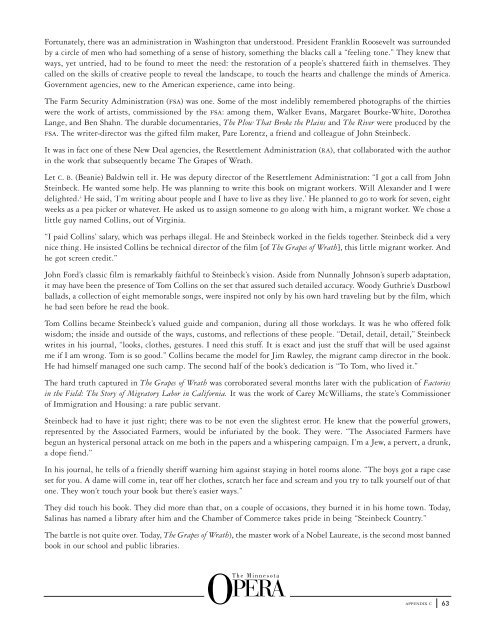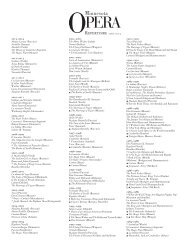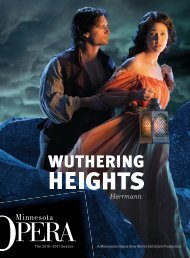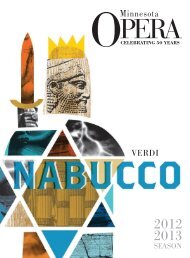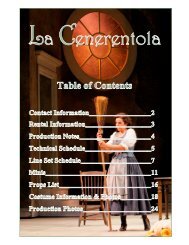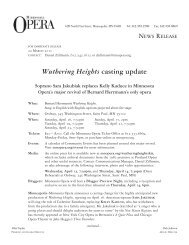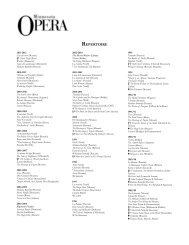You also want an ePaper? Increase the reach of your titles
YUMPU automatically turns print PDFs into web optimized ePapers that Google loves.
Fortunately, there was an administration in Washington that understood. President Franklin Roosevelt was surrounded<br />
by a circle of men who had something of a sense of history, something the blacks call a “feeling tone.” They knew that<br />
ways, yet untried, had to be found to meet the need: the restoration of a people’s shattered faith in themselves. They<br />
called on the skills of creative people to reveal the landscape, to touch the hearts and challenge the minds of America.<br />
Government agencies, new to the American experience, came into being.<br />
The Farm Security Administration (fsa) was one. Some of the most indelibly remembered photographs of the thirties<br />
were the work of artists, commissioned by the fsa: among them, Walker Evans, Margaret Bourke-White, Dorothea<br />
Lange, and Ben Shahn. The durable documentaries, The Plow That Broke the Plains and The River were produced by the<br />
fsa. The writer-director was the gifted film maker, Pare Lorentz, a friend and colleague of John Steinbeck.<br />
It was in fact one of these New Deal agencies, the Resettlement Administration (RA), that collaborated with the author<br />
in the work that subsequently became The <strong>Grapes</strong> of Wrath.<br />
Let C. B. (Beanie) Baldwin tell it. He was deputy director of the Resettlement Administration: “I got a call from John<br />
Steinbeck. He wanted some help. He was planning to write this book on migrant workers. Will Alexander and I were<br />
delighted. 3 He said, ‘I’m writing about people and I have to live as they live.’ He planned to go to work for seven, eight<br />
weeks as a pea picker or whatever. He asked us to assign someone to go along with him, a migrant worker. We chose a<br />
little guy named Collins, out of Virginia.<br />
“I paid Collins’ salary, which was perhaps illegal. He and Steinbeck worked in the fields together. Steinbeck did a very<br />
nice thing. He insisted Collins be technical director of the film [of The <strong>Grapes</strong> of Wrath], this little migrant worker. And<br />
he got screen credit.”<br />
John Ford’s classic film is remarkably faithful to Steinbeck’s vision. Aside from Nunnally Johnson’s superb adaptation,<br />
it may have been the presence of Tom Collins on the set that assured such detailed accuracy. Woody Guthrie’s Dustbowl<br />
ballads, a collection of eight memorable songs, were inspired not only by his own hard traveling but by the film, which<br />
he had seen before he read the book.<br />
Tom Collins became Steinbeck’s valued guide and companion, during all those workdays. It was he who offered folk<br />
wisdom; the inside and outside of the ways, customs, and reflections of these people. “Detail, detail, detail,” Steinbeck<br />
writes in his journal, “looks, clothes, gestures. I need this stuff. It is exact and just the stuff that will be used against<br />
me if I am wrong. Tom is so good.” Collins became the model for Jim Rawley, the migrant camp director in the book.<br />
He had himself managed one such camp. The second half of the book’s dedication is “To Tom, who lived it.”<br />
The hard truth captured in The <strong>Grapes</strong> of Wrath was corroborated several months later with the publication of Factories<br />
in the Field: The Story of Migratory Labor in California. It was the work of Carey McWilliams, the state’s Commissioner<br />
of Immigration and Housing: a rare public servant.<br />
Steinbeck had to have it just right; there was to be not even the slightest error. He knew that the powerful growers,<br />
represented by the Associated Farmers, would be infuriated by the book. They were. “The Associated Farmers have<br />
begun an hysterical personal attack on me both in the papers and a whispering campaign. I’m a Jew, a pervert, a drunk,<br />
a dope fiend.”<br />
In his journal, he tells of a friendly sheriff warning him against staying in hotel rooms alone. “The boys got a rape case<br />
set for you. A dame will come in, tear off her clothes, scratch her face and scream and you try to talk yourself out of that<br />
one. They won’t touch your book but there’s easier ways.”<br />
They did touch his book. They did more than that, on a couple of occasions, they burned it in his home town. Today,<br />
Salinas has named a library after him and the Chamber of Commerce takes pride in being “Steinbeck Country.”<br />
The battle is not quite over. Today, The <strong>Grapes</strong> of Wrath), the master work of a Nobel Laureate, is the second most banned<br />
book in our school and public libraries.<br />
appendix c<br />
63


